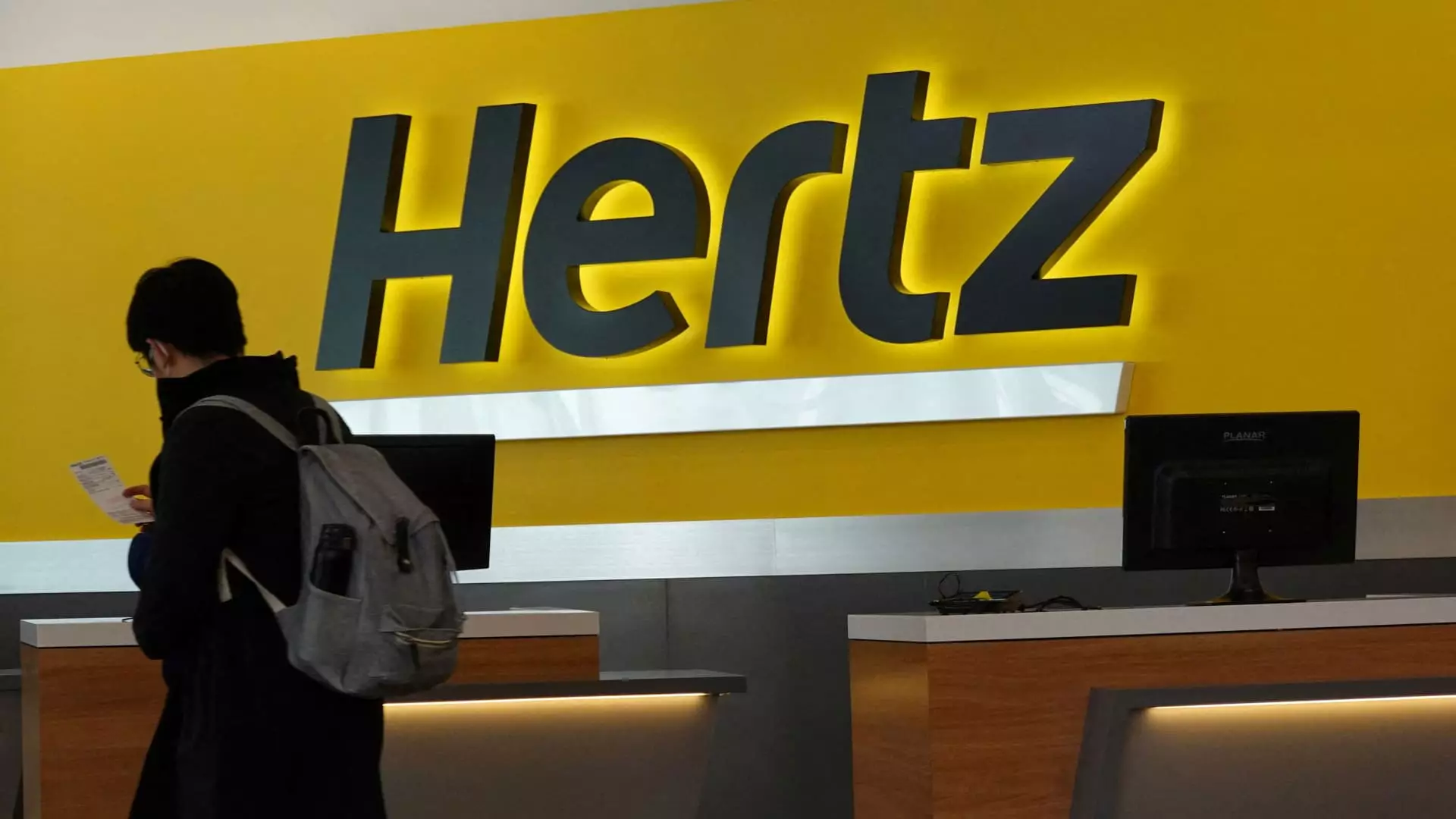In a dramatic twist of fate, Hertz Global Holdings, a titan in the car rental industry, finds itself grappling with harsh scrutiny from the market. The firm’s recent first-quarter earnings report sent shockwaves through the investment community, with its shares plummeting by as much as 20% during early morning trading on Tuesday. Ultimately, Hertz’s stock ended the day with a nearly 17% drop, following an earnings call that revealed more than just disappointing financial figures. Despite entering the call with a mere 3% dip, the tide quickly shifted as analysts and investors digested Hertz’s troubling results.
For a company attempting to reclaim its former glory, posting a loss of $1.12 per share—worse than the already bleak expectation of 97 cents—is an agonizing setback. Automotive revenue also fell significantly, clocking in at $1.81 billion, falling short of the anticipated $2 billion. As if that wasn’t alarming enough, Hertz announced plans for a staggering $250 million stock offering to invigorate cash flows against a backdrop of looming debt. Such drastic measures reflect a desperate attempt to stave off deeper financial wounds, yet they only serve to amplify investor fears regarding sustainability.
Fleet Reduction and Revenue Transformation: A Risky Gamble
The most perplexing aspect of Hertz’s strategy lies in its decision to reduce the number of vehicles available for rent, ostensibly as a response to decreased bookings and the broader economic malaise affecting the rental industry. With consumer confidence waning and U.S. tourism taking a hit, fewer cars at Hertz’s disposal could serve to harm its recovery more than it helps. Reflecting on this, CEO Gil West commented that the measures taken regarding fleet size and operational costs were born from prioritizing immediate financial impact over long-term revenue-building efforts.
Yet, what Hertz fails to recognize is that cutting services only exacerbates its problems. The reduction in fleet capacity, down 8% compared to the same period last year, is part of a strategy dubbed the “Back-to-Basics Roadmap.” While emphasizing vehicle efficiency is a practical goal, the underlying message is dangerously contradictory: by focusing on reducing capacity, Hertz appears to be sacrificing the very revenue it so desperately needs for profitability. As Analyst Dan Levy eloquently stated, rebuilding the demand is a much tougher mountain to climb than simply cutting costs.
Long-term Consequences of Immediate Fixes
Hertz’s initiatives may present some short-term victories, such as a $92 million improvement in operating expenses year-over-year, but the long-term consequences loom ominously on the horizon. Despite aspirations to cut depreciation rates per unit below $300 and achieving positive adjusted EBITDA by the third quarter of 2025, the reality is predictive of turbulence and uncertainty. As the company shuffles through the pressures of auto tariffs and a downturn in consumer sentiment, these immediate fixes could lead to detrimental long-term effects that further alienate its customer base.
Interestingly, the promise of a booming vehicle sales market comes at an ironic time as this profit-to-loan dynamic exemplifies broader systemic inefficiencies within the company. Even while the resale market appears lucrative, the core business stands on shaky ground. Ultimately, Hertz is caught in a paradox: focusing on short-lived financial maneuvers while neglecting to build a resilient, customer-focused operation that can weather economic storms.
The Specter of Investor Withdrawal
What could spell disaster for Hertz, however, is the potential exodus of investors who are now viewing the rental giant through a lens of skepticism. The support it received from influential figures, such as Bill Ackman and his 19.8% stake in the company, may have buoyed its stock earlier in the year, but the erosion of confidence signals a troubling trend. As notable analysts begin to label Hertz’s approach as “net negative,” it becomes increasingly clear that the gamble may not pay off.
In a world where adaptability and resilience are paramount, it appears Hertz is caught in a whirlwind of poor decisions, oscillations in consumer confidence, and internal strife. For a company that once stood tall in the rental car industry, it now encounters perilous territory, underscoring the sobering reality that without a robust recovery strategy, the path forward could lead to even deeper financial abyss.

